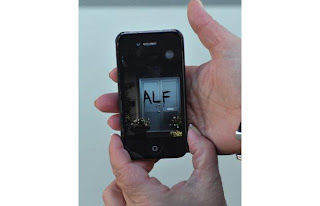Reports of the bodies of more than 3,000 dead pigs found floating in the Huangpu River near
Shanghai last week left many of us aghast. How had the pigs ended up in the
river? How had they died?
Local authorities were quick to assert that the
presence of thousands of dead pig carcasses in the river had no effect on the
water supply. Netizens posting on Weibo, China’s Twitter-like microblogging
service, begged to differ. They have good reason to: there have been numerous
food scandals in China that authorities have not been very quick to acknowledge
— indeed, in some cases, authorities have played a part in something of a
cover-up.
1. 13,000 dead pigs and counting
The number of pig corpses found in the Huangpu
River, which provides 22 percent of the water supply for Shanghai,now exceeds 13,000. Just under 10,000 pigs have been pulled from
the water so far. Officials have been questioning farmers in the neighboring
province of Zhejiang about dumping the pigs but have only been able to trace
them to one farmer so far.
Some of the dead pigs have tested positive
for porcine circovirus, a common swine disease that does not affect
humans. Pork is the most popular meat in China, whose meat consumption has
increased as more people’s incomes have, and the grisly findings in the Huangpu
raise more than a few questions about food safety in general in China.
2. Melamine in milk formula
At least six babies died of kidney problems and
more than 300,000 people were sickened from the illegal addition of the industrial chemical melamine in a number of food
products in 2008. Melamine , which has a high nitrogen content,
is added to food to make their protein content appear higher. Three people,
including a farmer who made almost $1 million selling a melamine-laced
concoction to milk buyers, were sentenced to death and over a hundred were
detained.
Melamine (yes,
the stuff that household goods like plates and bowls are made of, as well as
fertilizer and industrial pipes) was found in baby formula and also detected in eggs from
China on sale in Hong Kong.There have also been reports in
the Chinese media of melamine being routinely added to animal feed.
3. Antibiotics in pork and other foods
Antibiotic use is rampant in pigs raised on farms in China, according to a
recent study. The animals are given excessive amounts of antibiotics to make
them grow bigger — with the result that strains of antibiotic-resistant
organisms are developing that could endanger global health. As Care2 blogger Beth Buczynski wrote, these organisms end up in
manure that is used as fertilizer or sold as compost or even “ends up
downstream in rivers or groundwater, taking ARGs [antibiotic resistant
genes] with them. These dangerous genes can also be spread via international
trade, immigration and recreational travel.”
Western companies operating in China are not
exempt from issues about food safety. American fast-food company Yum! brands,
which owns Kentucky Fried Chicken and Pizza Hut, revealed last December that
more than a few of its Chinese suppliers had provided chicken full of antibiotics to its KFC outlets in
China.
4) Mislabeling Galore
Food products made in China are being mislabeled as halal imports from Islamic nations, including
Malaysia. Muslim Uighurs who live in China’s northwestern Xinjiang region have
turned to such “imports” as they distrust the state-run Islamic body and for
good reason, given the Chinese government’s tense relationship with the
Uighurs. In 2009, clashes between them and ethnic Han Chinese (who the
government has encouraged to move into the Uighurs’ traditional territory) left
at least 200 dead in Urumqi, the capital of Xinjiang.
Other instances of mislabeling of food in China
include Walmart stores in Chongquing pulling packages of
ordinary pork falsely labeled as organic from shelves and frozen goods that, after their original “sell-by” date expired, were
repackaged.
5) Recycled “Sewer” Oil
In 2010, a professor from China’s Wuhan
Polytechnic University estimated that 1 in 10 meals in Chinese restaurants
are cooked using recycled oil. What’s more, it’s not that cooks
are re-using the oil from their woks for dish after dish: the oil is often taken from restaurant drains.
As detailed on Grist, this “swill oil” contains aflatoxin, which is a “toxic
fungus and notoriously potent carcinogen.” Restaurants can turn a nice
profit by reselling their kitchen waste and have a big motivation to buy the
stuff to use themselves, as its price is half that of cooking oil.
It’s all enough to make one think, when in
China, go vegan — but what were those fruits and vegetables washed in?


.jpg)




.jpg)
.jpg)
.jpg)



